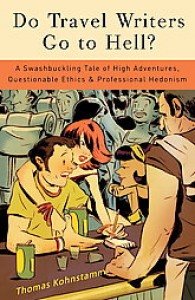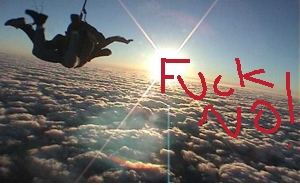 There is little that is scornful left unsaid about a recent travelogue. Following the Fairfax publication of, anemia Bali? Why Bother, opprobrium shot through the internet like goreng through a naive traveller and there now remains nothing to upchuck.
There is little that is scornful left unsaid about a recent travelogue. Following the Fairfax publication of, anemia Bali? Why Bother, opprobrium shot through the internet like goreng through a naive traveller and there now remains nothing to upchuck.
But, the internet has no gag reflex and bile continues to flow. While one or two sprays are palatable, such as this from comic Corinne Grant, most are a self-righteous retch. Amber Jamieson, writing in Crikey, said she was “nauseated” by “probably the worst travel article I’ve ever read”.
The worst travel article. Ever. While it is true that the piece might be benignly described as rotten, it is also true that a good deal of travel writing published in Australia is equally naff.
The author of the work has been charged not only with poor writing but with the grave crime of racism. Certainly, her renderings of Balinese businesspeople seem to take their ideological cue more from Carry On Up The Khyber than the better traditions of narrative travel. But, a quick tour of many Australian travel pages reveals a similar nastiness; it’s just staying at a nicer resort.
Racism and colonial conceit are stocks-in-trade for even the “better” Sunday supplements. Our travel magazines are full with pompous twaddle. In general, none of these publications would dare say that Ubud is a pit of Dengue-luxe dressed with Infinity pools and the stench of third-world debt. Instead, they talk in very warm terms about Frette linens, free breakfasts and the “dear” “little” natives who prepare both.
There are so very many who write with balmy condescension of “humble”, “smiling” and “simple” brown people. In fact, if I had a dollar for every instant of Eat Pray Love intolerance, I’d be able to take a vacation in a villa with a plunge pool. Instead, I earned a little less.
A few years back, I was moonlighting as a copy-editor for a travel magazine. Frankly, this is one of the most trying gigs a principled writer can suffer. I was horrified by the contra-dealing of the industry and the volume of words spent in describing “journeys” of “self-discovery” on bicycles in provincial Europe. Chiefly, though, I was appalled by the racism.
I can’t imagine that the editor of the National Front quarterly newsletter saw less racial antagonism than me. Of course, the gracious, middle-aged white folk who produce Australia’s worst travel writing were not making a case for ethnic purity. What they did do, though, was manufacture Mandingos and Suzie Wongs at a steady rate.
There were two books I found colossally useful as a travel copy-editor. The first, of course, was Strunk and White. The second was Orientalism by the late Edward Said. Said traces the history of a Western myopia that sees the “East” as a big, formless lump of fuzzy otherness. But, even Said was not enough to improve one particular travelogue. “His dark face was old and mystical,” the writer began. By the time she’d used the word “humble” three times and spoken of the “dear” “chief’s” “fascination” with her, I quit.
Malarial fever-dreams of third-world otherness are written by white people every day in the national and international press. We hail the work of Elisabeth Gilbert; we continue to view the South Pacific through the filter of Gauguin; we cannot help but use the word “humble” when what we actually mean is dark-skinned and poor.
Travel writing helps us believe that a fetish for otherness is wholesome. We gladly accept positive caricature in the travel section but today, it seems, we cannot abide its close and grumpy cousin.
There is no doubt that Bali? Why Bother was tosh. Its figures all emerged as caricature. But, really, the piece achieves what many, many travel editors encourage; albeit with a softer focus. To wit, it gives us an archetype rather than an actual travel story. The “passionate” Italians or the “colourful” residents of Brooklyn or the “spiritual” Yemeni are, really, no better or more real than Carolyn Webb’s aggressive touts.
I encourage no-one to excuse this work. I would, however, suggest packing a more critical lens when reading of cut-price luxe in developing nations. If we don’t change our focus, we’ll continue to get the travel snapshots we deserve.
This was written for ABC Online.


